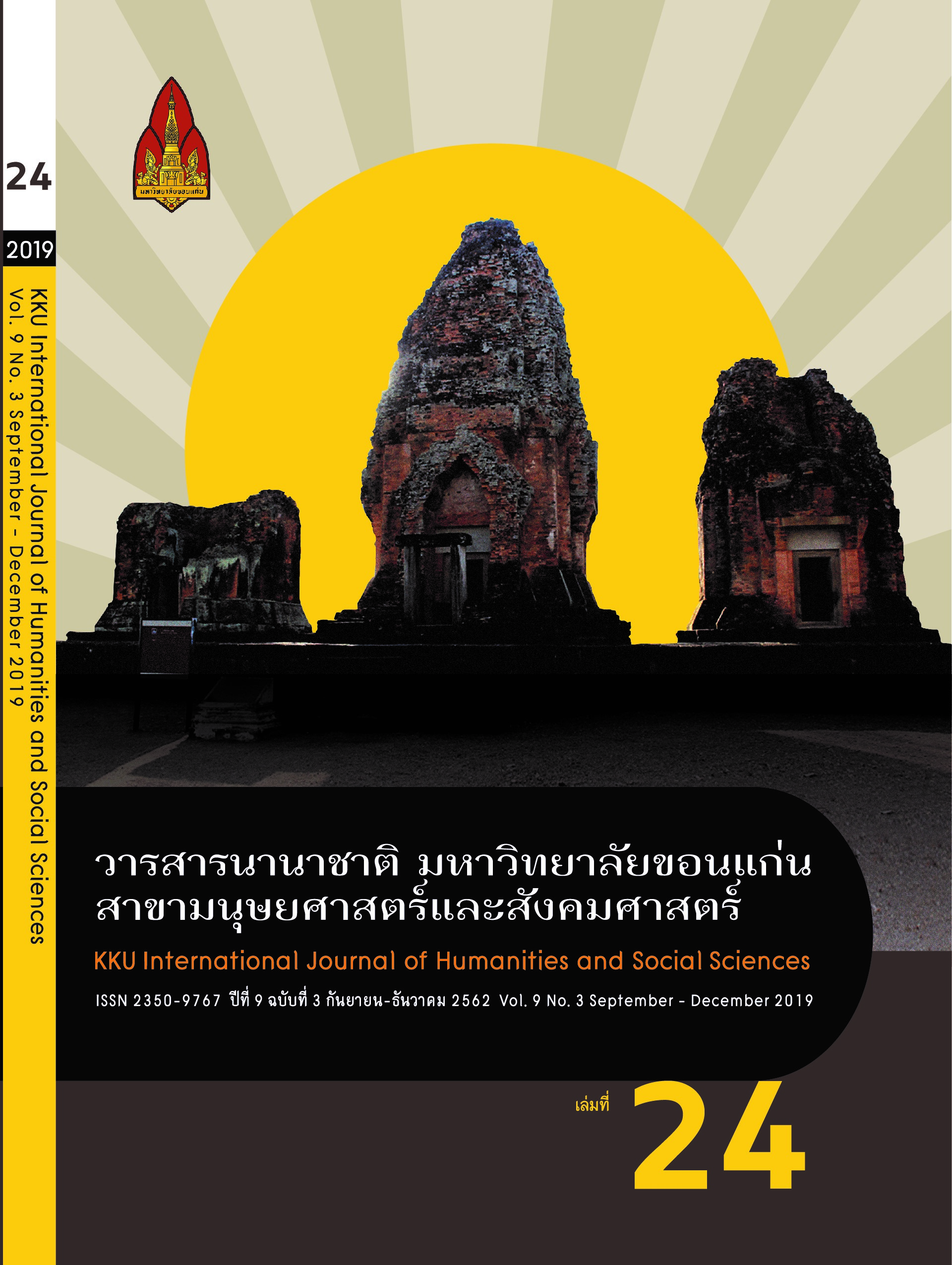Ability to Work after Graduation of Vocational Students and University Students.
Main Article Content
Abstract
The objectives of this research are to study and compare the ability to work of vocational students and university students after graduation. The opinions and recommendations of entrepreneurs in Nakhon Ratchasima province are also investigated. This research focused on working readiness and efficiency working. Data collection method included in-depth interview with key informants and the obtained data were analyzed by content analysis. The findings were reported in descriptive manner.
The results showed that most entrepreneurs prefer vocational students’ working ability to university students because vocational students are ready to work and have high degree of patience, and they were trained to work specifically while studying, whereas the university students mostly learned from books. However, certain type of employers satisfied with university students working because students have fast learning skill, leadership and problem solving skills. Every type of entrepreneur recommended that the important characteristics of all graduates should include positive attitude at work, patience, and the basic necessary skills such as communication skill, computer skill, and problem solving skill.
Article Details
References
กระทรวงแรงงาน. (2560). บทสรุปผู้บริหาร สถานการณ์แรงงานและดัชนีชี้วัดภาวะแรงงานจังหวัด
นครราชสีมา. สืบค้นจาก https://mol.go.th/sites/nakhonratchasima.mol.go.th/files/ bthsrupphuubrihaar _aitrmaas_1_pii_60.pdf, เข้าถึงเมื่อวันที่ 19 มกราคม 2562.
ธิดา กมลรุ่งเรือง. (2559). ภาวะผู้นำการเปลี่ยนแปลงของผู้บริหารสถาบันอุดมศึกษาไทยในเขตภาค
ตะวันออก. วารสารการบริหารปกครอง, 5(2), 124-145.
เบญจวรรณ ถนอมชยธวัช และคณะ. (2559). ทักษะแห่งศตวรรษที่ 21: ความท้าทายในการพัฒนานักศึกษา. วารสารเครือข่ายวิทยาลัยพยาบาลและการสาธารณสุขภาคใต้, 3(2), 208-222.
เสาวลักษณ์ จันทร์ประสิทธิ์. (2560). ความคาดหวังและความพร้อมของนักบัญชีในทรรศนะของผู้ประกอบการในจังหวัดสงขลา เมื่อเข้าสู่ประชาคมเศรษฐกิจอาเซียน. วารสารปาริชาต มหาวิทยาลัยทักษิณ, ฉบับพิเศษปี 2560, 117-126.
สำนักงานคณะกรรมการการอาชีวศึกษา. (2561). หลักสูตรประกาศนียบัตรวิชาชีพ พุทธศักราช 2556. สืบค้นจาก https://bsq2.vec.go.th/course/2556/course56new.html, เข้าถึงเมื่อวันที่
13 มกราคม 2562.
อมรวัชช์ นาครทรรพ. (2556). อุดมศึกษาไทยในรอบศตวรรษ :จากโอกาสและความหวังในอดีตสู่วิกฤตคุณค่าปริญญาในยุคอุดมศึกษาประชานิยม. กรุงเทพฯ: สถาบันรามจิตติ.
Benbow, Ross J. and Hora, Matthew T. (2018). Reconsidering College Student Employability: A Cultural Analysis of Educator and Employer Conceptions of Workplace Skills. Harvard Educational Review, 88(4), 483-515.
Mäkitalo-Siegl, Kati., Sointu, Erkko., Valtonen, Teemu., Järvelä, Sanna., Näykki, Piia.,
Häkkinen, Päivi., and Ahonen, Arto K. (2014). Preparing Teacher Students for 21st Century Learning Practices: Ways of Thinking and Working. Retrieved from https://www.aka.fi/globalassets/awanhat/documents/ohjelmat/tulos-tulevaisuuden-oppiminen-ja-osaaminen/tulos-hankekuvauspohja-makitalo-siegl.pdf, December 28, 2018.
Little, B. M. (2010). Employability for the workers – what does this mean?. Education+Training, 53(1), 57-66.
Trilling, B., & Fadel C. (2009). 21st Century Skills Learning for Life in Our Time. San Francisco, CA: A Wiley Imprint.


